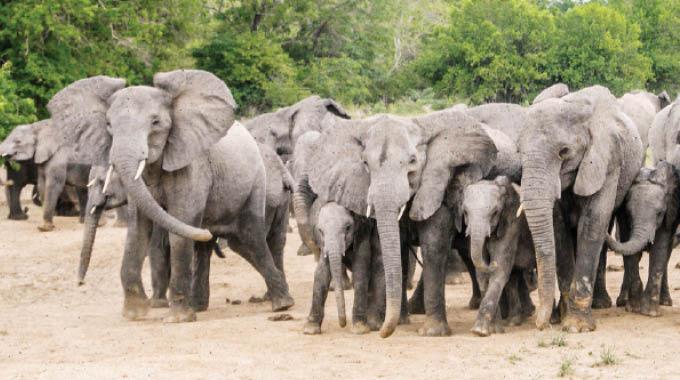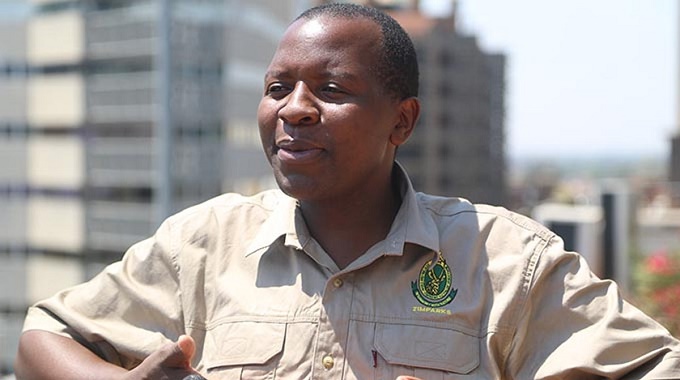Zimbabwe to host Elephant Summit in Hwange

Leonard Ncube in Victoria Falls
ZIMBABWE will host an African Elephant Summit in Hwange later this month as countries in the motherland seek to come up with a common position in terms of wildlife conservation, particularly elephant management.
Zimbabwe Parks and Wildlife Management Authority spokesperson Mr Tinashe Farawo said the occasion to be held from May 23 to 26 will be a platform to build consensus around wildlife management, take stock of successes and failures and monetise stockpiles among other objectives.
This could be the first time African countries will be convening independently of the outside world to talk about wildlife conservation, in particular elephants management to reflect on successes and failures without the influence of western national and international organisations.
“We are going to have an elephant summit here in Hwange from the 23rd to the 26th of May. The objectives that we want to achieve include building consensus around African countries to speak with one voice when it comes to wildlife management in general and elephant management in particular. When we go to international conferences we must not be divided as Africans.
We want to take stock of the failures and successes that we have recorded over the years and to monetise stock piles in our custody to benefit from them,” said Mr Farawo.
He said Africa, and Zimbabwe in particular, is a big player in elephant conservation and management because of the population of animals.
Southern Africa is home to half of Africa’s elephants and Zimbabwe’s population of more than 84 000 against a carrying capacity of 40 000 is only second to Botswana in the world.
Hwange National Park alone has a population of over 45 000 elephants against a capacity of 15 000.

Elephants at Hwange National Park
As a result the jumbos have been blamed for destruction of the habitat and this has also fuelled human-wildlife conflict as animals stray into communities in search of food and water.
Communities around national parks bear the brunt of the conflicts as they lose livestock, crops and sometimes people are killed.
Mr Farawo said conservation should benefit people.
“We have noticed with concern that most of the decisions that are made internationally are derived from people who sometimes have never seen an elephant or visited communities,” he said.

Mr Tinashe Farawo
The summit will thus discuss the growing burden of growing elephant overpopulation and the negative impact of the long existing ban on international trade in elephant ivory.
The countries want to come up with a harmonised and common position with regards to the Conference of Parties meeting especially with the upcoming COP27 to be held in Egypt which they should go to with one voice.
Zimbabwe and other countries are sitting on tonnes of ivory stock piles and have been pushing for the down listing of the Southern Africa elephant population from CITES Appendix 1.
Species listed under this criteria are those considered to be threatened with extinction and cannot be traded.
The discussion on the need to lift ban on trade in ivory has been topical at various wildlife summits and platforms.
Western countries and animal rights activists have been opposing trade in ivory. The summit is expected to set the tone towards a common African vision for management of elephants.
Sustainable utilisation is key as a major source of funding for wildlife management and conservation.
Zimbabwe, through Zimparks and its partners such as the International Fund for Animal Welfare (Ifaw) have initiated sustainable wildlife conservation programmes to benefit both wildlife and local communities. —
-@ncubeleon











Comments